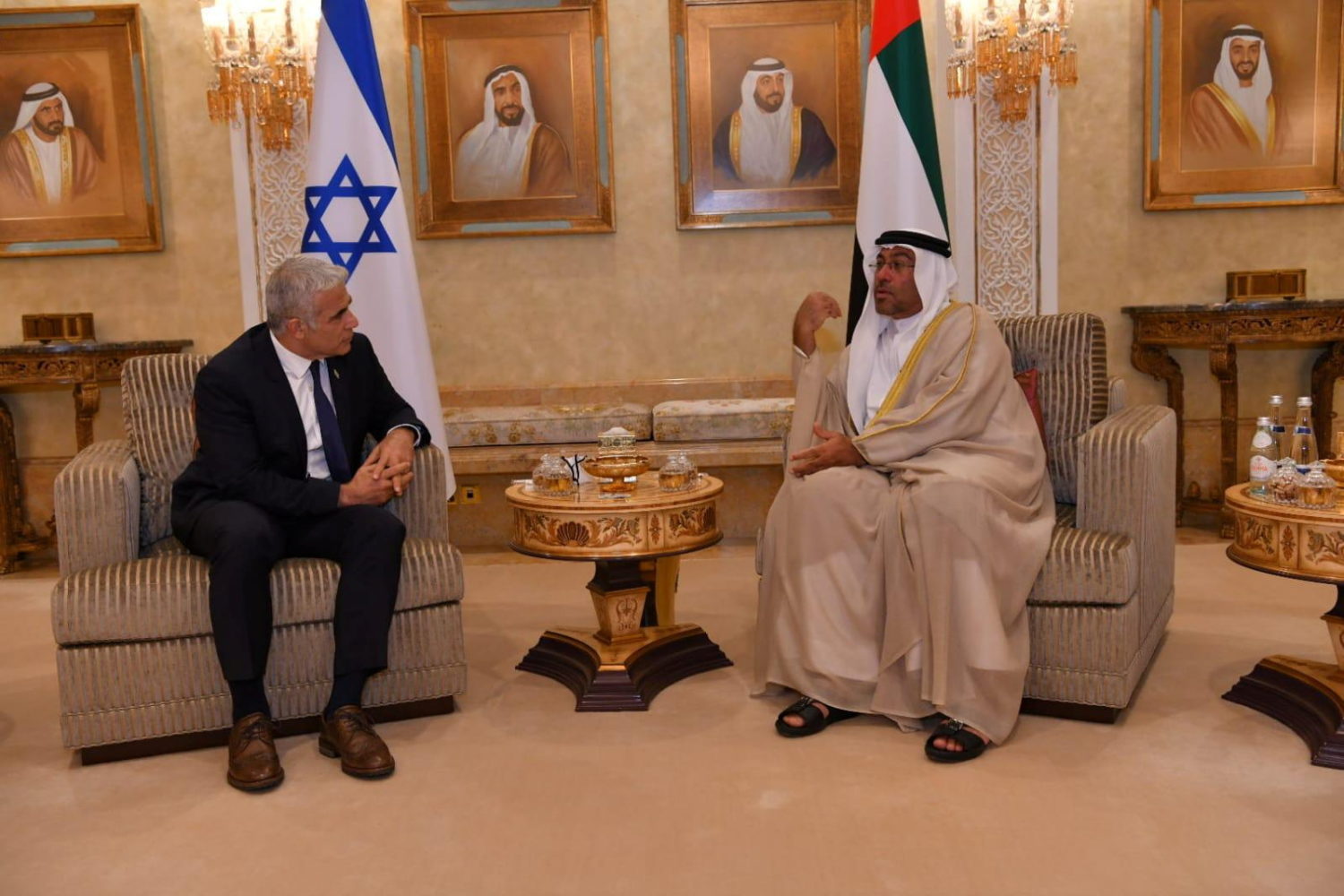
By Lisa Barrington
DUBAI (Reuters) -Israel’s new foreign minister inaugurated its embassy in the United Arab Emirates on Tuesday and offered an olive branch to other former adversaries, saying: “We’re here to stay.”
Yair Lapid’s two-day visit is the first to the Gulf state by an Israeli cabinet minister since the countries established ties last year. He was due to sign a bilateral agreement on economic cooperation and open an Israeli consulate in Dubai on Wednesday.
The trip is also an opportunity for the two-week-old Israeli government of Naftali Bennett, a nationalist who heads an improbable cross-partisan coalition, to make diplomatic inroads despite long-stymied talks with the Palestinians.
“Israel wants peace with its neighbors – with all its neighbors. We aren’t going anywhere. The Middle East is our home,” Lapid said during the ribbon-cutting ceremony at the Abu Dhabi high-rise office serving as a temporary embassy.
“We’re here to stay. We call on all the countries of the region to recognize that and to come to talk to us,” he said.
Brought together by shared worries about Iran and hopes for commercial boons, the UAE and Bahrain normalized relations with Israel last year under so-called “Abraham Accords” crafted by the administration of then U.S.-President Donald Trump. Sudan and Morocco have since also moved to establish ties with Israel.
Secretary of State Antony Blinken, welcoming Lapid’s visit, said Washington “will continue to work with Israel and the UAE as we strengthen all aspects of our partnerships and work to create a more peaceful, secure, and prosperous future for all the peoples of the Middle East”, the State Department said.
The regional rapprochement was deplored by the Palestinians, who want their demands for statehood free of Israeli occupation addressed first.
President Mahmoud Abbas dismissed the accords as “an illusion” and asserted that colonial powers had “implant(ed) Israel as a foreign body in this region in order to fragment it and keep it weak,” according to a report on Tuesday by the official Palestinian news service WAFA.
Tuesday’s agreement will be the 12th between Israel and the UAE, Lior Haiat, spokesman for Israel’s Foreign Ministry, said. Lapid is also set to visit the site of Expo 2020 Dubai, a world fair opening in October where Israel has built a pavilion.
Lapid’s plane transited through Saudi airspace. Riyadh, although not having normalized relations with Israel, last year opened its skies to Israel-UAE flights.
The UAE formally opened its embassy in Israel, temporarily located in the Tel Aviv stock exchange, this month.
Israel’s Abu Dhabi embassy still has only three diplomats and a head of mission, Eitan Na’eh, who has yet to be confirmed as full ambassador. The consulate in Dubai is similarly located in temporary premises.
Lapid was conciliatory toward former Israeli Prime Minister Benjamin Netanyahu, whose attempts to organize a trip to the UAE while in office were scotched by COVID-19 restrictions and who has sought to cast his ouster by Bennett as illegitimate.
Thanking Netanyahu as “the architect of the Abraham Accords,” Lapid said: “This moment is his, no less than it is ours.”
(Reporting by Ari Rabinovitch and Dan Williams; Additional reporting by Nidal Al-Mughrabi’Writing by Lisa Barrington; Editing by Clarence Fernandez, John Stonestreet, Nick Macfie, William Maclean)





